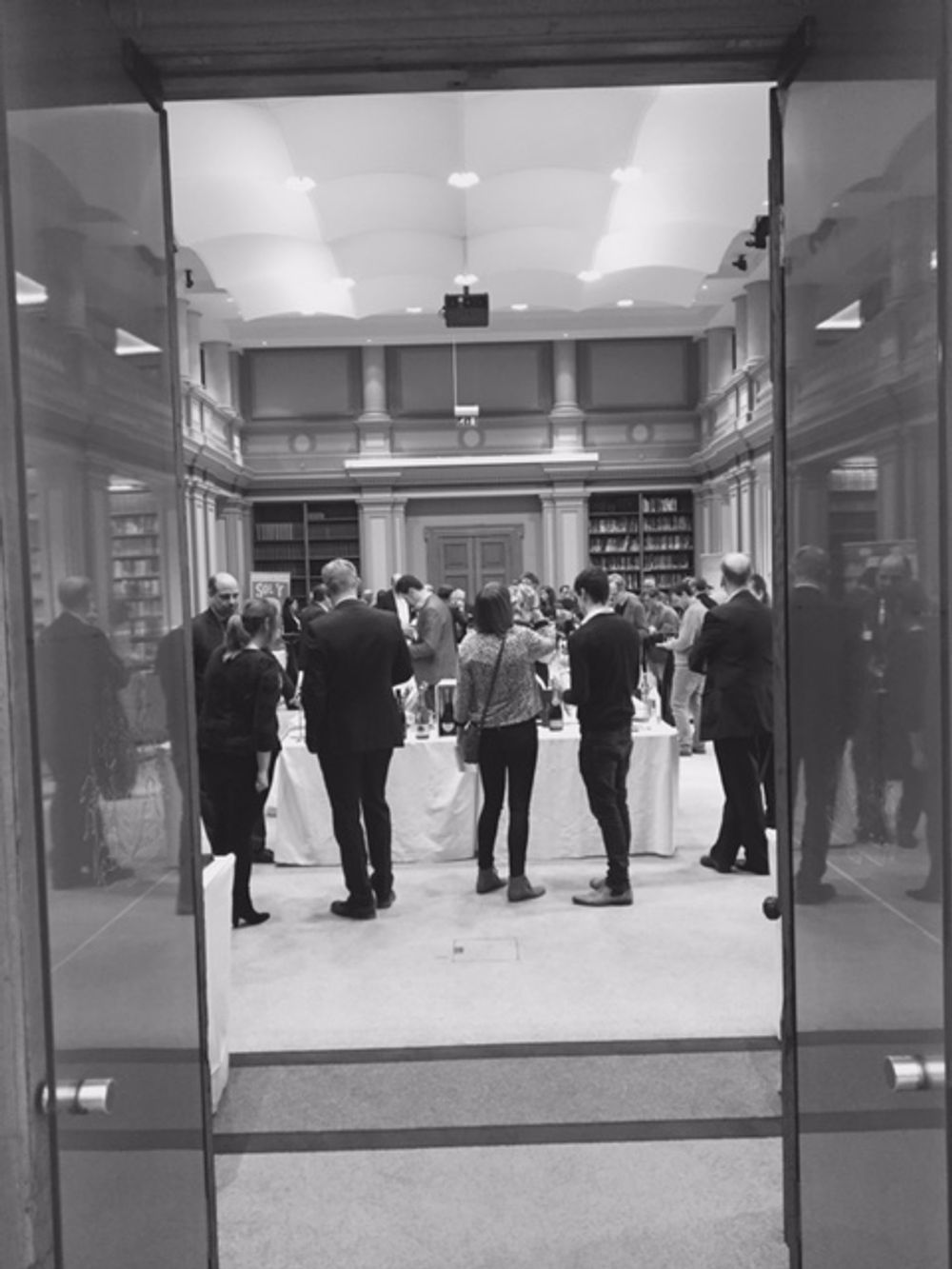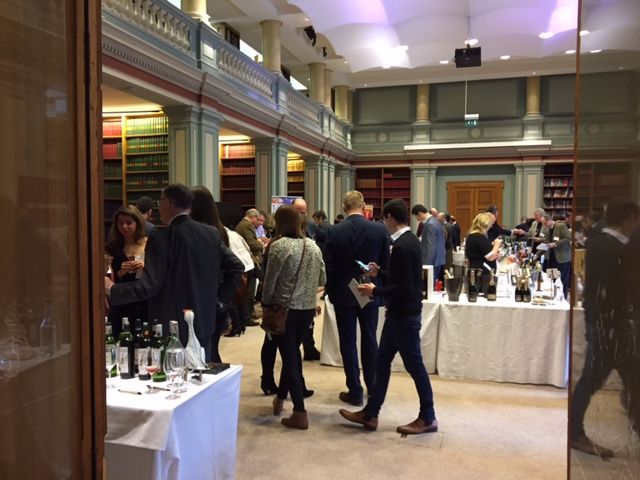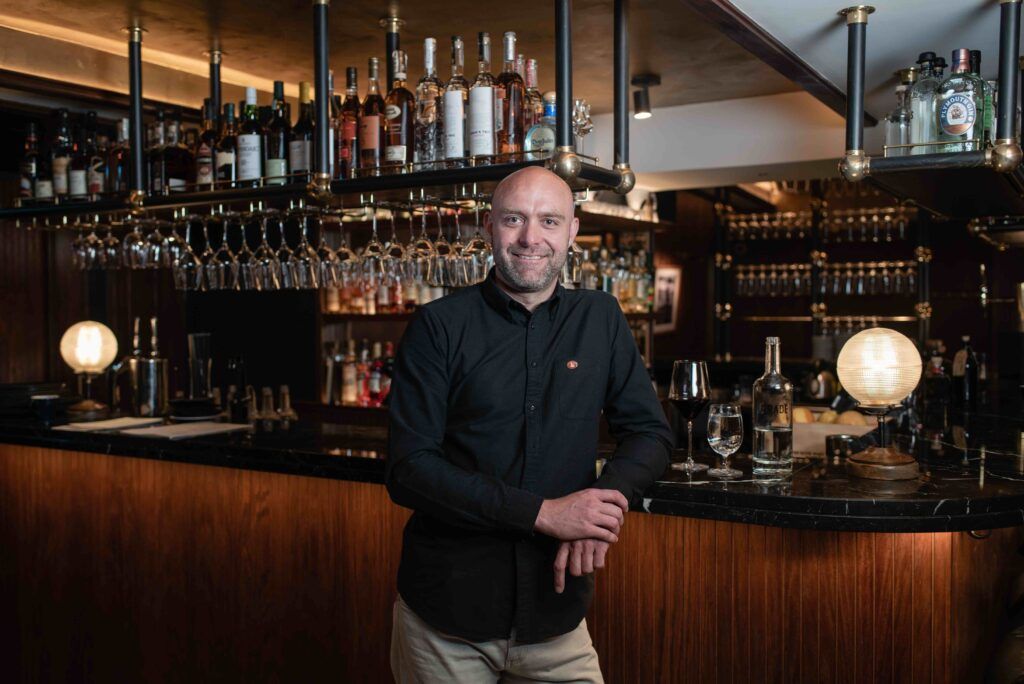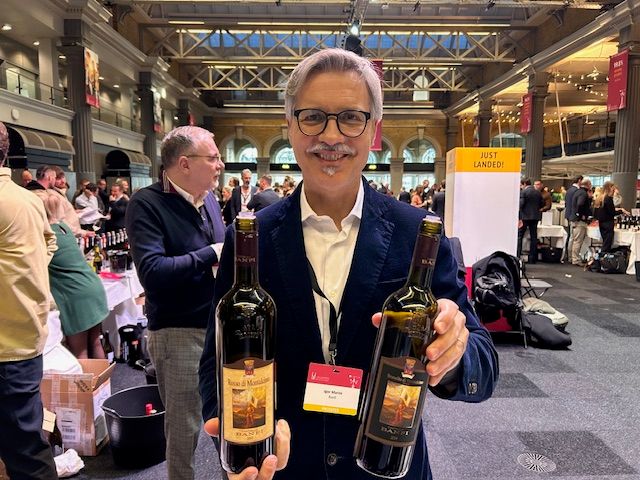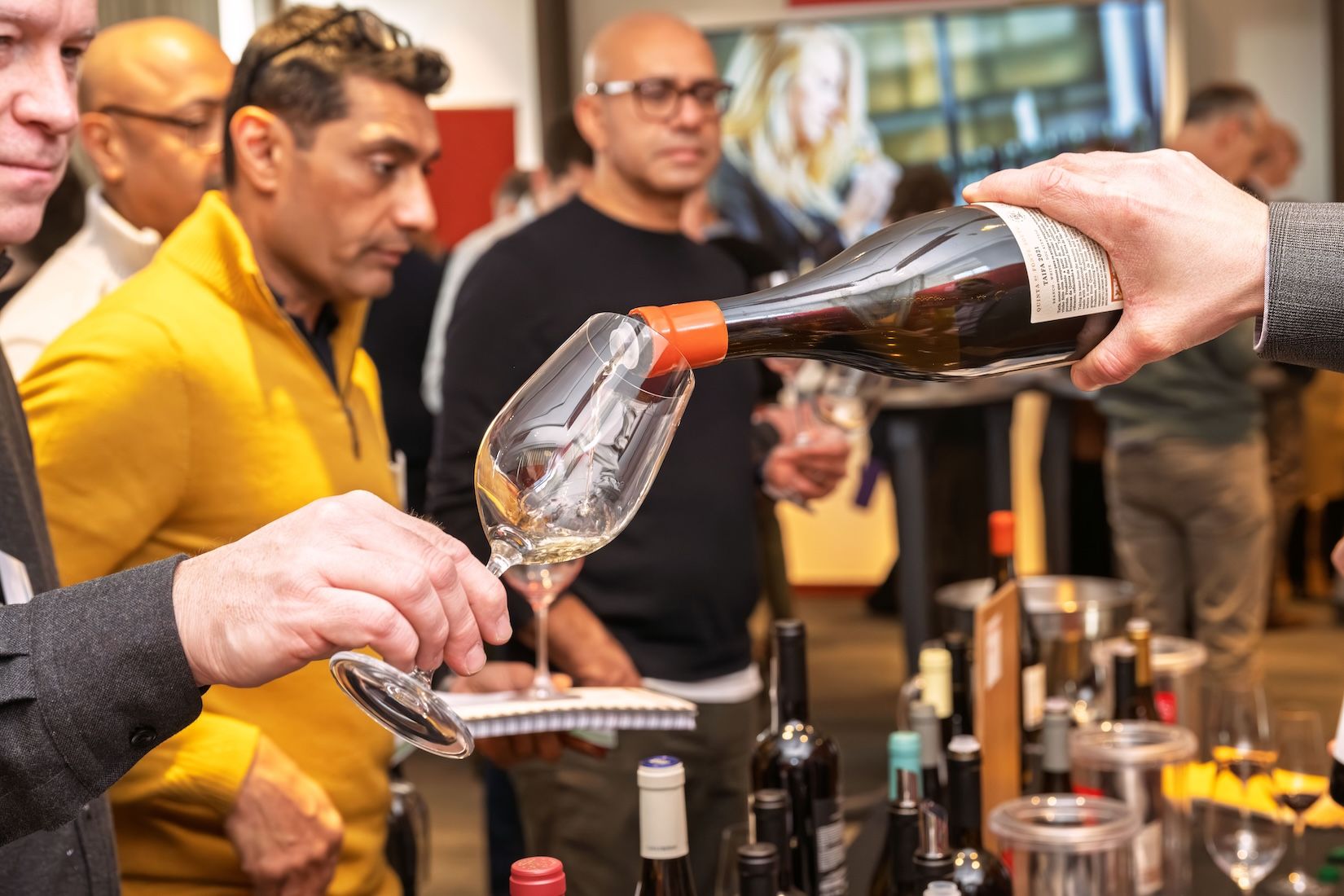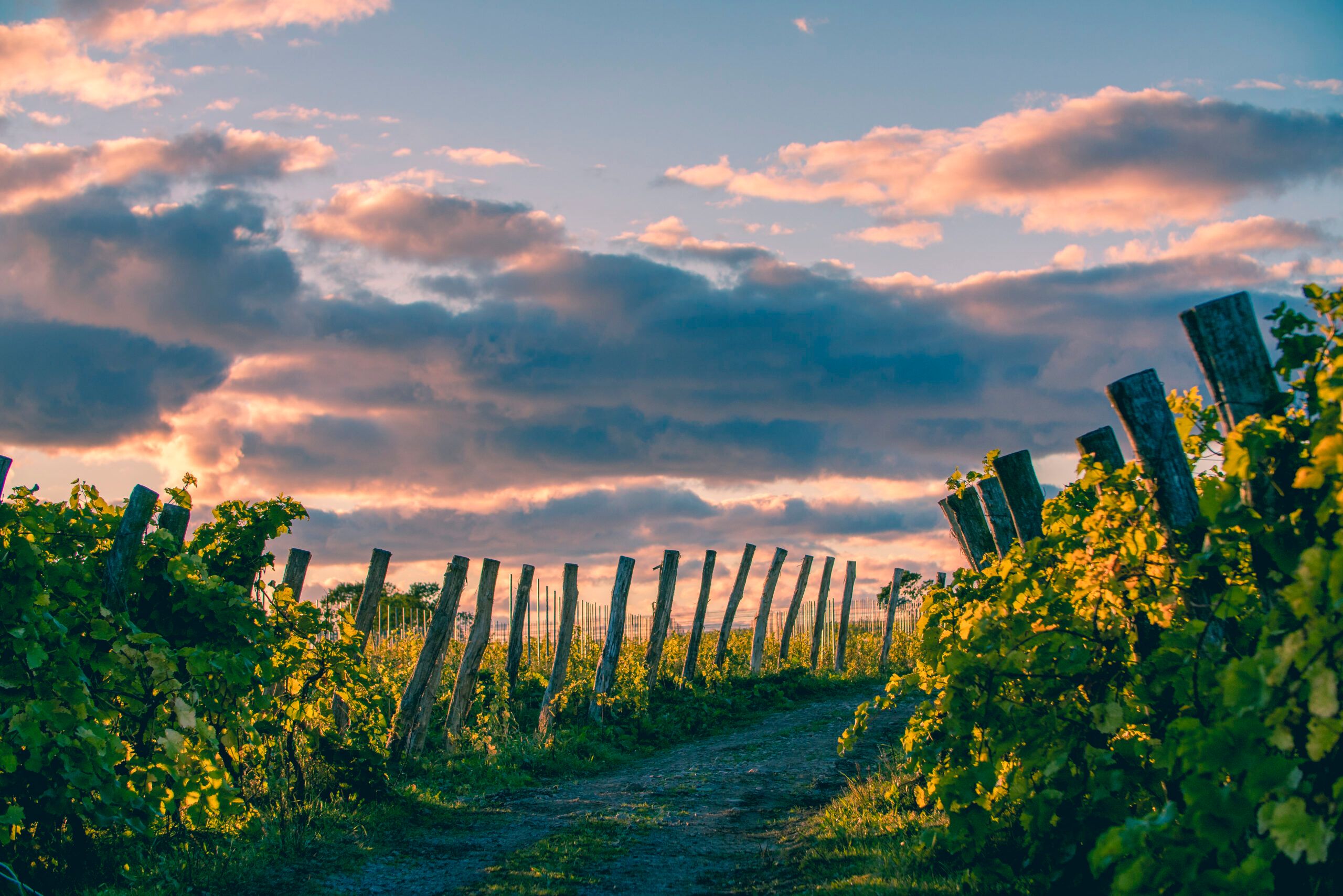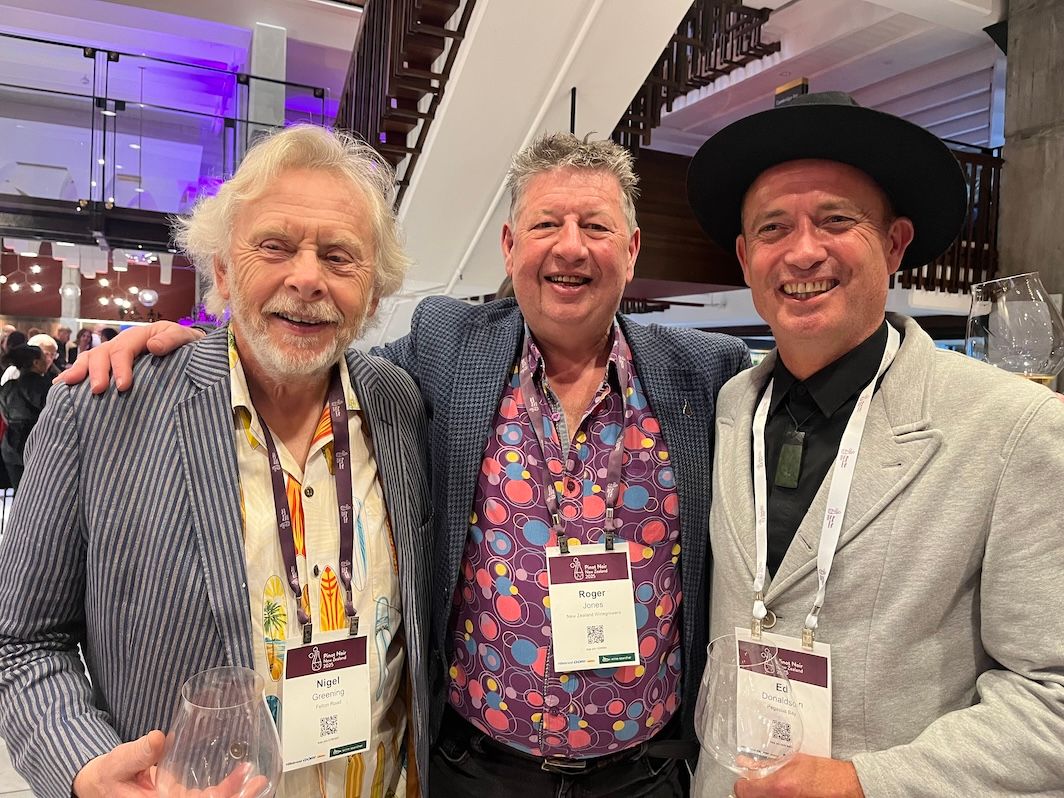Appassimento in Puglia, a top flight range of Cava including a 100% Xarel.lo, Bombino, Mavrud and the latest Beefsteak Club Malbec – all this and more at the Ehrmanns portfolio tasting.
As venues for wine tastings go The Royal Society of Chemistry has to be up there with the best.
The first floor library is a brilliant room full of light and old, interesting paintings (I’m sure that was Schrödinger’s Cat looking down on proceedings).

You can offer a nod of respect to busts of Davy, Dalton and Faraday as you ascend the grand staircase and there’s plenty of opportunity to make periodic table-themed puns as you sip and spit. It’s elemental!
In terms of getting off on the right foot the Ehrmanns team has pulled a blinder by booking this venue – a first, I understand, for a wine tasting.
The tasting itself was full of interesting wines (old and new), interesting people (old and younger) and plenty of reasons to get excited about their small but clever offering. Here’s five things we took away from the event.
- Cava Is Upping Its Game
Apparently the Japanese love Cava, can’t get enough of it.
Sales of Cava in the land of the rising sun has gone up every year since 2008. Sadly for the Spanish the same can’t be said of the UK market but, on the evidence of this tasting, there’s real energy and innovation in Cava at the moment.
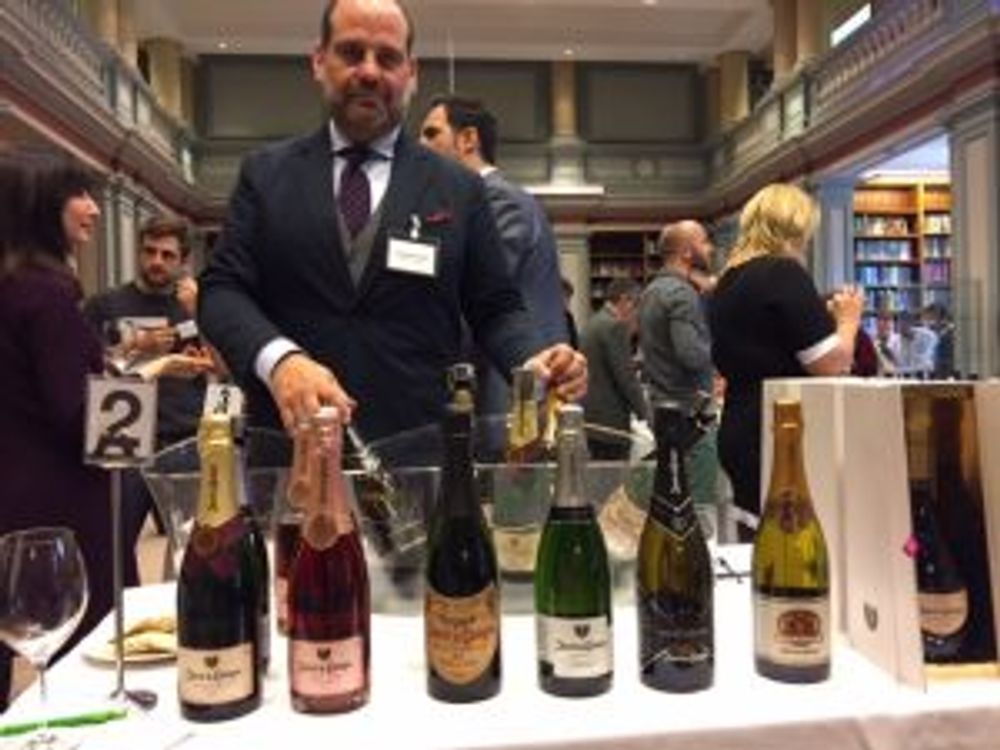
Family-owned winery Juvé y Camps only makes vintage Cava and targets the top end of the market with their Reserva and Gran Reserva wines.
Their most interesting wine, and a newcomer to the UK market, is the Essential Xarel.lo 2013, a 100 per cent Xarel.lo wine that celebrates this indigenous variety and its importance to the history and heritage of Cava production.
Xarel.lo is found in most Cavas, but as part of a blend. Here is shines all alone, and boy does it shine.
It’s complex and fruity, zippy and mineral. The fruit is fresh with a green pear and citrus edge that’s lifted by the biscuit and caramel characters coming from the autolysis and ageing. A cracker, and a very modern and marketable wine too.
- Appassimento Is Alive & Well… In Puglia
If you thought appassimento (a traditional northern Italian method used to dry grapes to concentrate the aromas and characters ahead of fermentation) only took place in the Veneto to produce famous wines such as Valpolicella Ripasso and Amarone – think again.
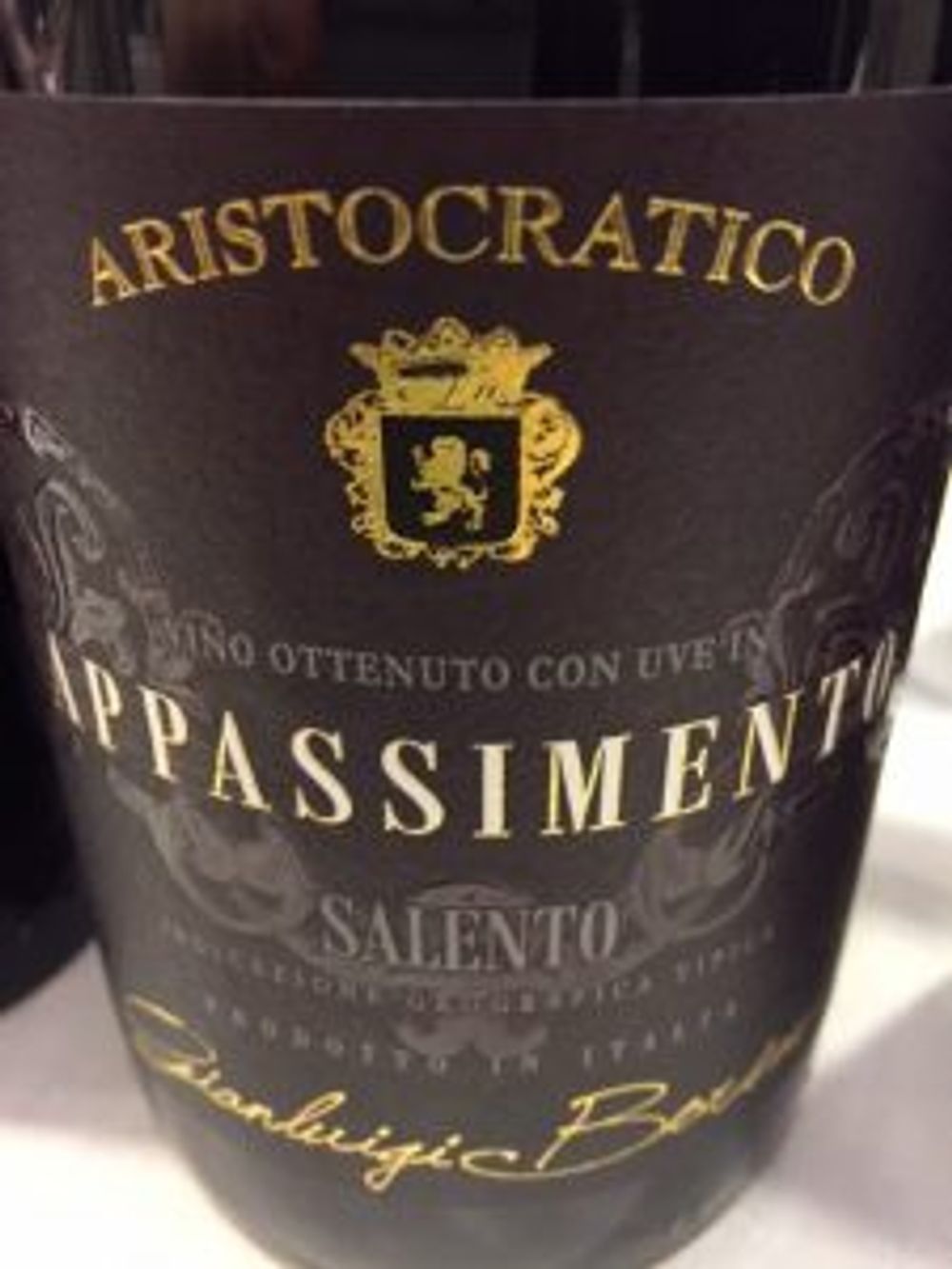
One of the finds of the tasting was a delicious, incredibly drinkable Negroamaro made using the appassimento grape drying practice, but this wasn’t from Verona, this was from Puglia in the south.
On first glance it looks a little insipid, a little thin, like the sun hadn’t come out at all in Puglia that year, but once it passed the lips – bam! – the fruit took hold. And wouldn’t let go; plums, figs, dark cherry, the lot.
Then some seductive smooth tannins and vanilla. Such a juicy wine that’s so easy-drinking and so deceptively strong (14%) that it could get you in a lot of trouble.
Bring it on.
- Pouring Chat Doesn’t Have To Be About Wine
We’ve all been there; wine poured, sipped, spat, the guy/girl looks at you ‘what do you think?’, and you have to give your opinion on the spot, then and there in front of the person who may well have made the wine, or at least has a vested interest in it being well received.
So you give a judgement, try not to offend (even if it’s ropey old stuff) and move on to the next wine. And do it all over again.
Which is why it’s brilliant when every so often – once or twice every tasting is perfect for me – that the person pouring the wine has more to chat about than wine, and they are engaging and knowledgeable and sometimes there’s no holding them back. And why would you want to?
And, as a result of these conversational diversions away from the grape and the terroir and the naming of different fruits, the wines – and the events themselves – become far more memorable.
There was one of these moments at the Ehrmanns tasting; it was a clear highlight and I got to learn all about WW2 prisoner of war camps, fighter pilots and how Gavi in Piedmont has a fortress that was a ‘bad boys’ prison for those who attempted escape from other camps. Brilliant stuff.
- Indigenous Varieties Are Stronger Than Ever
I’ve talked about the 100 per cent Xarel.lo and how it knocked the other Cavas into a cocked hat (certainly in terms of interest and marketability), but this wasn’t the only indigenous variety singing from the rooftops at the tasting. Two particular stand-outs were Bombino from Piedmont and Mavrud from Bulgaria.
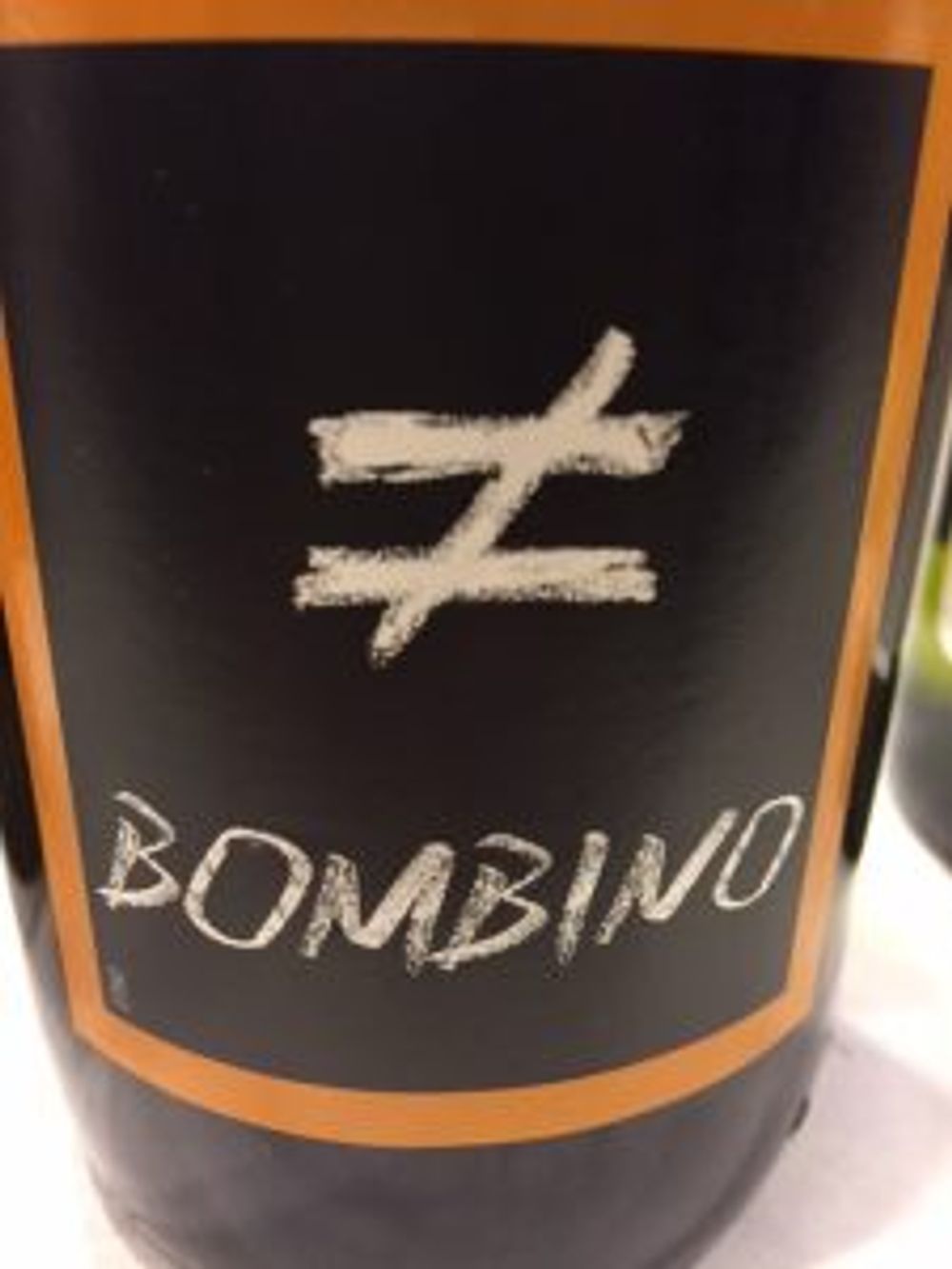
Let’s start in northern Italy with the Bombino (best grape name since Reichensteiner), which is found more in Puglia than Piedmont but is a rarity wherever it’s grown (there are only 3,000 ha under vine in Italy).
In this instance (L’Olivella Bombino 2015) it produced a wine that was floral and fleshy, with a wild flower and elderflower nose. There was white pepper and unripe peach too and a salinity on the finish.
Incredibly refreshing and a great introduction to this uncommon variety.
The other unknown (to me at least) variety that impressed was found in a Bulgarian red blend where it made a splendid bedfellow to the ubiquitous Merlot.
Mavrud, the winemaker explained to me, was a delicious grape in its own right but a hard sell in the UK on its own, which is why he stuck it in a blend with Merlot.
It worked very well; it was rich and brambly with a tomato leaf and waxy edge that was very attractive. Grown in the Thracian Valley and produced by Domaine Boyar, the Bolgare Development Range Merlot-Mavrud 2015 is one to look out for.
- The Beefsteak Club Concept Goes From Strength to Strength
In terms of marketing concepts the Beefsteak Club brand of wines created in-house by Ehrmanns is route one stuff (think Wimbledon FC in the mid-late 1980s) but like many ideas the simple ones are often the best.
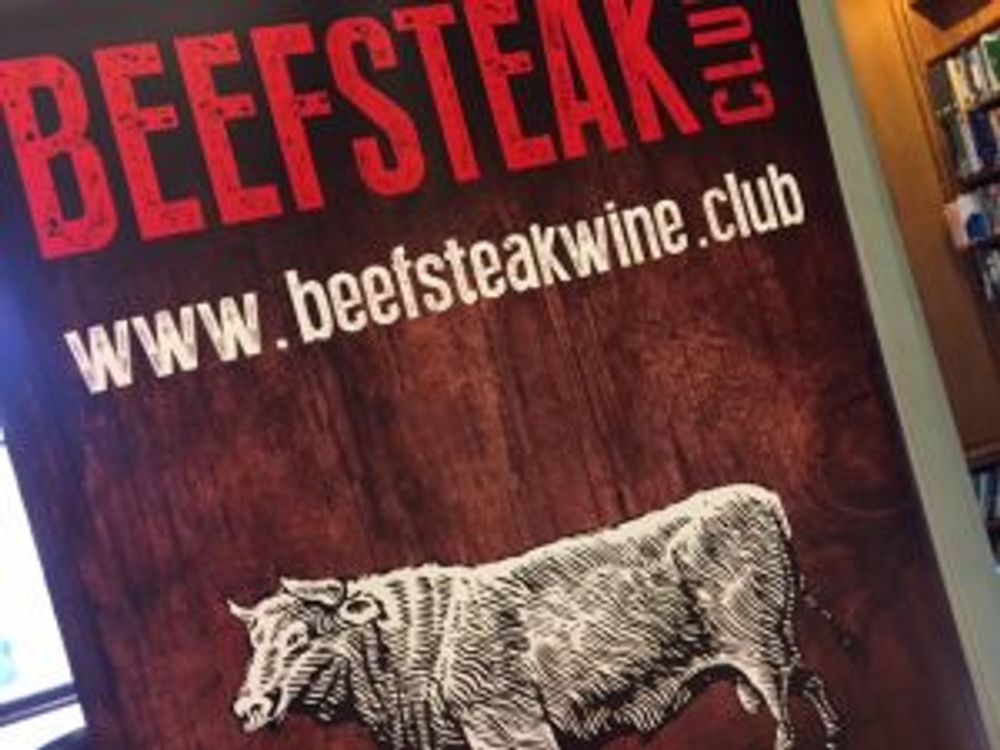
The range features only Malbecs and leans heavily on the ‘perfect pairing’ of Malbec and – you’ve guessed it – steak!
The wines are clearly working as they have introduced four new additions to the range this year; an estate-bottled Malbec, a magnum, a Mini Malbec in an 18.75cL bottle and a bag-in-box. All bases covered then.
The wines themselves are exactly what you’d expect; vibrant, forward and fruit-driven. This one could run and run… a bit like John Fashanu during his Crazy Gang years.
